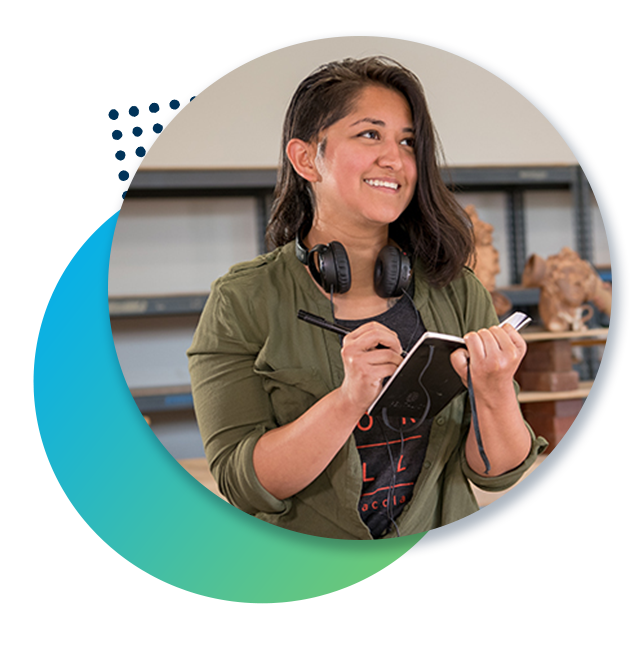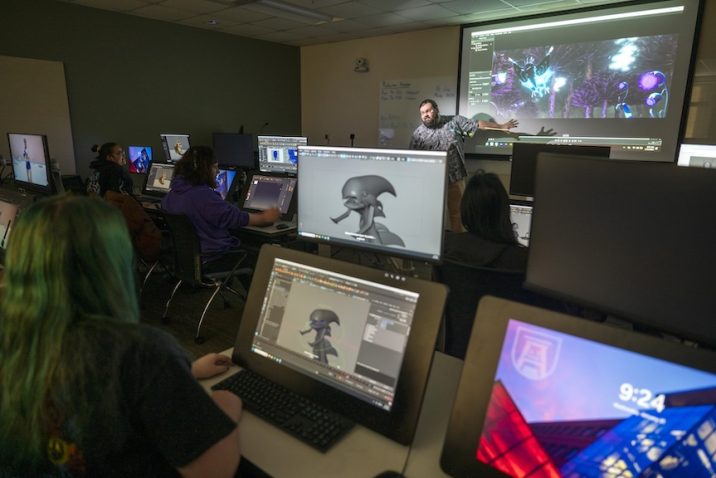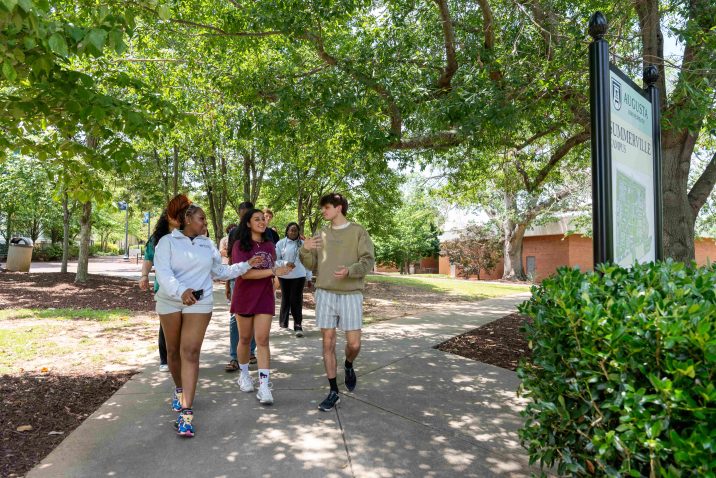English, BA
Are you interested in studying literature? Working in editing, publishing, or user
design? Preparing for a career in teaching?
This program from Pamplin College of Arts, Humanities, and Social Sciences’ Department of English & World Languages
prepares students for a variety of career pathways.
An English degree from Augusta University offers a unique experience — one that allows
you to concentrate your studies on the area that interests you to prepare you for
the career you want.
What You'll Study
Coursework
In the English program, you’ll concentrate on the area you’re interested in, whether creative writing, professional writing, or literature.
Focal Points
Concentrations
Bachelor of Arts with a major in English and a concentration in Literature
Bachelor of Arts with a major in English and a concentration in LiteratureBachelor of Arts with a major in English and a concentration in Creative Writing
Bachelor of Arts with a major in English and a concentration in Creative WritingBachelor of Arts with a major in English and a concentration in Professional Writing and Rhetoric
Bachelor of Arts with a major in English and a concentration in Professional Writing and RhetoricBachelor of Arts with a major in English and a Secondary Teacher Certification
Bachelor of Arts with a major in English and a Secondary Teacher CertificationExperience-based Education
Outside the Classroom
The Department of English and World Languages seeks to serve the larger university
and greater Augusta community through public event programing and collaborative projects
with local schools.
Events like the annual African-American Read-In and our community partnerships with
organizations such as the Jessye Norman School of the Arts draw public participation
and outside guests.
Publications like the Sand Hills Literary Magazine and others give students opportunities
to build impressive portfolios of published work.
Research & Innovation
Whether you’re an undergraduate or graduate student, you’ll have opportunities to create your own research projects or work with faculty to tackle some of the world’s most complex and pressing challenges.
Research Center
Pamplin College’s Center for Social Science Research involves students as active partners in research projects that assist local public and nonprofit agencies improve their effectiveness.
Student Publications
Student publications are an excellent way to find your voice and strengthen your portfolio, and Pamplin College has a wide range to get involved with.
Clubs & Organizations
Student clubs and organizations help you “plug in” to campus life in a way that can lead to meaningful connections, new interests and resume-enhancing experiences.



Interested in teaching?
Secondary Education certificate available
If you are interested in working with students in grades 6-12, you might consider a certificate in Secondary Education in addition to your degree. Teachers, school counselors, and other educational personnel must be certified by the Georgia Professional Standards Commission to teach in elementary, middle, or secondary public schools.
Augusta University offers an opportunity to complete your teaching certification while earning your degree within specific programs of study. Once students have completed their coursework and passed their certification, they can add secondary teaching education to their list of career opportunities.
Learn about secondary education certificatesYour Future
Career Options
The core skills of accurate communication and analytical thinking are valued across the employment spectrum, and the concentrations tailor those skills for specific career areas such as publishing, user design, writing for business or public organizations, teaching, or entering graduate programs in literature, Rhetoric and Composition, or education.

Why Augusta?
Major concentrations make it easy for students to match their academic interests with their career goals.
Internships and dynamic extracurricular opportunities ensure students have a broad range of experiences.
Research by faculty and students contributes to the wider community of scholarship.




